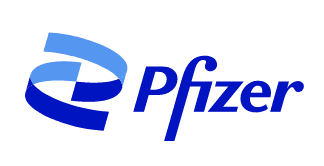Search Posts
Recent Posts
- Rhode Island Weather for May 22, 2025 – Jack Donnelly May 22, 2025
- We Cook! Mill’s Tavern Louisiana style beer braised Short Rib, Grits, Baked Beans, Cornbread May 22, 2025
- RI Veterans: Did you know? 22.05.25 (Medical, Memorial Day, War Dog, events) – John A. Cianci May 22, 2025
- RI Trucking Association calling on Governor and General Assembly to halt truck tolls May 22, 2025
- 8th annual Rhode Island Slow Pitch Softball Hall of Fame: Class of 2025 May 22, 2025
Categories
Subscribe!
Thanks for subscribing! Please check your email for further instructions.

Moving ahead with COVID vaccines for young children
Moderna (6 mos-5 yrs) and Pfizer (5-11 yrs booster) are next up seeking approval as vaccines. The Moderna will be 2 shots, 4 weeks apart, at 25% strength of an adult shot for children 6 mos to 5 years. Pfizer’s approval request is for a booster for children 5 to 11. After the age of 12, regular vaccine protocols are already in place.
The American Academy of Pediatrics released a statement urging “Quick and Transparent Steps Toward Review of COVID-19 Vaccine for Youngest Age Group of Children”. Part of that statement:

“The number of children infected with COVID has started to rise again after a brief decline following the omicron variant surge. As of April 21, more than 37,000 additional child COVID-19 cases were reported, an increase of about 43% from two weeks ago. This marks the second consecutive weekly increase in child cases. AAP also urges parents of children already eligible for the COVID vaccine to make sure they are up to date on vaccinations. As of April 20, roughly 28% of U.S. children ages 5-11 years had received both doses of the vaccine, and 35% had received at least one dose. There are 18.6 million children ages 5-11 who have yet to receive their first COVID-19 vaccine dose, according to the CDC.
AAP is eager to see data on a COVID-19 vaccine for children under age 5, and recognizes the hardships placed on families whose youngest children remain without protection. AAP continues to urge that the process for authorizing a vaccine be transparent, data-driven and thorough to ensure the safety and efficacy of a vaccine for our little ones,” Dr. Szilagyi said. “Parents are encouraged to talk with their pediatrician if they have questions about the vaccine.”
Here is information from Moderna (followed by information from Pfizer):

Moderna, a biotechnology company pioneering messenger RNA (mRNA) therapeutics and vaccines, today announced that it has submitted a request for emergency use authorization (EUA) for its COVID-19 vaccine (mRNA-1273) in children 6 months to under 2 years and 2 years to under 6 years of age to the U.S. Food and Drug Administration and that similar requests are underway with international regulatory authorities. The requests are based on a 25 μg two-dose primary series of mRNA-1273.
“We are proud to share that we have initiated our EUA submission for authorization for our COVID-19 vaccine for young children,” said Stéphane Bancel, Chief Executive Officer of Moderna. “We believe mRNA-1273 will be able to safely protect these children against SARS-CoV-2, which is so important in our continued fight against COVID-19 and will be especially welcomed by parents and caregivers.”
Positive interim results from the Phase 2/3 KidCOVE study, announced on March 23, 2022, showed a robust neutralizing antibody response in the 6 month to under 6 years of age group after a two-dose primary series of mRNA-1273, along with a favorable safety profile. The antibody titers in the pre-specified 6 month to 23 month and 2 years to under 6 years age sub-groups met the statistical criteria for similarity to the adults in the COVE study, which satisfied the primary objective of the study. The previously announced results included a supportive preliminary efficacy analysis on cases mostly collected during the Omicron wave, including home testing for COVID-19. When the analysis is limited only to cases confirmed positive for SARS-CoV-2 by central lab RT-PCR vaccine efficacy remained significant at 51% (95% CI: 21-69) for 6 months to <2 years and 37% (95% CI: 13-54) for 2 to <6 years. These efficacy estimates are similar to vaccine efficacy estimates in adults against Omicron after two doses of mRNA-1273.
The EUA submission for children ages 6 months to under 6 years will be complete next week. Moderna is also currently studying booster doses for all pediatric cohorts.
The KidCOVE study is being conducted in collaboration with the National Institute of Allergy and Infectious Diseases (NIAID), part of the National Institutes of Health (NIH) and the Biomedical Advanced Research and Development Authority (BARDA), part of the Office of the Assistant Secretary for Preparedness and Response at the U.S. Department of Health and Human Services. The ClinicalTrials.gov identifier is NCT04796896.
BARDA, part of ASPR within the U.S. HHS is supporting the continued research and development of the Company’s COVID-19 vaccine development efforts with federal funding under contract no. 75A50120C00034. BARDA is reimbursing Moderna for 100 percent of the allowable costs incurred by the Company for conducting the program described in the BARDA contract.
About Moderna
In over 10 years since its inception, Moderna has transformed from a research-stage company advancing programs in the field of messenger RNA (mRNA), to an enterprise with a diverse clinical portfolio of vaccines and therapeutics across seven modalities, a broad intellectual property portfolio in areas including mRNA and lipid nanoparticle formulation, and an integrated manufacturing plant that allows for rapid clinical and commercial production at scale. Moderna maintains alliances with a broad range of domestic and overseas government and commercial collaborators, which has allowed for the pursuit of both groundbreaking science and rapid scaling of manufacturing. Most recently, Moderna’s capabilities have come together to allow the authorized use and approval of one of the earliest and most effective vaccines against the COVID-19 pandemic.
Moderna’s mRNA platform builds on continuous advances in basic and applied mRNA science, delivery technology and manufacturing, and has allowed the development of therapeutics and vaccines for infectious diseases, immuno-oncology, rare diseases, cardiovascular diseases and auto-immune diseases. Moderna has been named a top biopharmaceutical employer by Science for the past seven years. To learn more, visit www.modernatx.com.
___
Pfizer and BioNTech Submit Application for U.S. Emergency Use Authorization for a COVID-19 Vaccine Booster Dose in Children 5 Through 11 Years of Age

Pfizer and BioNTech SE submitted an application to the U.S. Food and Drug Administration (FDA) for Emergency Use Authorization (EUA) of a 10-µg booster dose of the Pfizer-BioNTech COVID-19 Vaccine for children 5 through 11 years of age (also referred to as children ages 5 through <12).
The submission included data from the Phase 2/3 clinical trial in children ages 5 through 11 years who received a booster dose approximately 6 months after the second dose of the Pfizer-BioNTech COVID-19 Vaccine 10-µg two-dose primary series, which was authorized under EUA for this age group in October 2021. Data from this study demonstrated a strong immune response in this age group following a booster dose of the Pfizer-BioNTech COVID-19 Vaccine with no new safety signals.
The companies also plan to submit these data to the European Medicines Agency (EMA) and other regulatory agencies around the world for authorization in the coming weeks.
The Pfizer-BioNTech COVID-19 Vaccine, which is based on BioNTech’s proprietary mRNA technology, was developed by both BioNTech and Pfizer. BioNTech is the Marketing Authorization Holder in the United States, the European Union, the United Kingdom, Canada and the holder of emergency use authorizations or equivalents in the United States (jointly with Pfizer) and other countries. Submissions to pursue regulatory approvals in those countries where emergency use authorizations or equivalent were initially granted are planned.
About the Phase 1/2/3 Trial in Children
The Phase 1/2/3 trial initially enrolled up to 4,500 children ages 6 months to under 12 years of age in the United States, Finland, Poland, and Spain from more than 90 clinical trial sites. Additional children have been enrolled in all age groups following study amendments and the trial currently includes more than 10,000 children. The trial was originally designed to evaluate the safety, tolerability, and immunogenicity of the Pfizer-BioNTech COVID-19 Vaccine on a two-dose schedule (approximately 21 days apart) in three age groups: ages 5 to under 12 years; ages 2 to under 5 years; and ages 6 months to under 2 years. Based on the Phase 1 dose-escalation portion of the trial, children ages 5 to under 12 years received a two-dose schedule of 10-µg each while children under age 5 received a lower 3-µg dose for each injection in the Phase 2/3 study. The trial enrolled children with or without prior evidence of SARS-CoV-2 infection. In December 2021, Pfizer and BioNTech announced the companies would test a third 3-µg dose given at least two months after the second dose in children under age 5 and a third dose of the 10-µg formulation in children 5 to under 12 years of age. The companies expect to share data from the ongoing study in children 6 months to under 5 years of age later this quarter.
U.S. Indication & Authorized Use
Pfizer-BioNTech COVID-19 Vaccine is FDA authorized under Emergency Use Authorization (EUA) for active immunization to prevent coronavirus disease 2019 (COVID-19) caused by severe acute respiratory syndrome coronavirus 2 (SARS-CoV-2) in individuals 5 years of age and older.
Pfizer-BioNTech COVID-19 Vaccine is FDA authorized to provide:
Primary Series
- a 2-dose primary series to individuals 5 years of age and older
- a third primary series dose to individuals 5 years of age and older with certain kinds of immunocompromise
Booster Series
- a first booster dose to individuals 12 years of age and older who have completed a primary series with Pfizer-BioNTech COVID-19 Vaccine or COMIRNATY® (COVID-19 Vaccine, mRNA)
- a first booster dose to individuals 18 years of age and older who have completed primary vaccination with a different authorized or approved COVID-19 vaccine. The booster schedule is based on the labeling information of the vaccine used for the primary series
- a second booster dose to individuals 50 years of age and older who have received a first booster dose of any authorized or approved COVID-19 vaccine
- a second booster dose to individuals 12 years of age and older with certain kinds of immunocompromise and who have received a first booster dose of any authorized or approved COVID-19 vaccine
